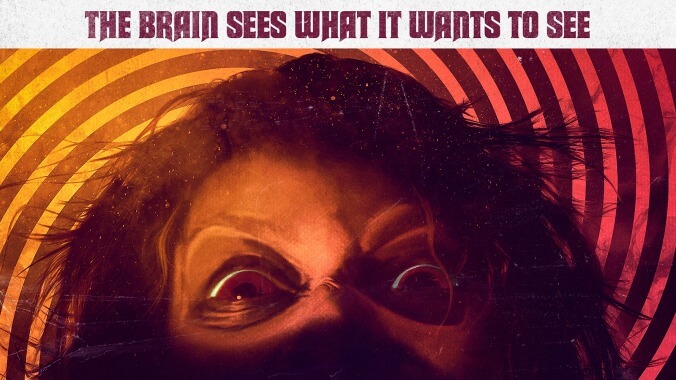A theater hit, the horror anthology Ghost Stories fails to translate its scares to the big screen

Adapted from their hit stage show, which played the West End in 2010 and 2011, Jeremy Dyson and Andy Nyman’s Ghost Stories pays homage to what was then a largely defunct mini-genre: the British omnibus horror movie. They were thinking of old-school chillers like Dead Of Night (1945), Black Sabbath (1963), and Asylum (1972), which would serve up three or four brief tales of the supernatural, usually yoked together via a flimsy framing story. Since then, the American equivalent has made a bit of a comeback, thanks to the V/H/S series and its imitators; what seemed quaintly old-fashioned onstage now risks looking like an opportunistic jump onto the bandwagon. Which would be a shame, since Ghost Stories works best as an exercise in nostalgia. Those seeking hardcore, modern-day scares will be disappointed.
As he did in the play, Nyman (recently seen as the guy whose phone Liam Neeson keeps borrowing in The Commuter) anchors the framing story as Professor Goodman, host of a minor reality TV show called Psychic Cheats. Goodman is a James Randi sort, committed to exposing those who prey on the gullible. He’s first seen revealing that a well-known psychic gets audience members’ personal information fed to him by an assistant through a hidden earpiece. One day, however, Goodman receives a challenge: three cases of the paranormal that have been closely examined by a fellow expert, who found them inexplicable. Off Goodman heads to interview the three subjects, triggering three bite-sized flashbacks that make up the bulk of the movie. As it turns out, though, Goodman has more in common with them than he thinks.
To say much more would be venturing deep into spoiler territory, especially because Ghost Stories pivots on a conceit that’s always more effective onstage than onscreen. (Sharp-eyed readers may already have noticed a suspiciously passive construction in the previous paragraph, meant to preserve the secret.) Psychologically, the film suffers from a certain rote clumsiness—it’s the sort of ostensibly stealthy character study that names its protagonist Goodman because it’s going to question whether he is, in fact, a good man. Also, horror thrives on the inexplicable, so a horror movie that painstakingly explains the source of its horror, grounding everything in mundane past trauma, inevitably winds up neutering itself.
Still, none of that would matter much were the three individual stories sufficiently spooky. Reportedly, they worked like gangbusters in the original production, thanks to ingenious staging (Nyman has worked extensively with illusionist Derren Brown), but cinema’s comparative concreteness does them few favors. The first story mostly just observes a night watchman (Paul Whitehouse) roam around a dilapidated set in the dark with a flashlight, encountering the usual jump scares. The second story sees an irritatingly high-strung teenager (Alex Lawther, over the top) hit what looks like a goat-man on a deserted country road, though there’s little payoff—again, for a reason that eventually does make sense but is best not divulged. Martin Freeman makes a welcome appearance in the third tale, as a man whose house is invaded by a poltergeist at the same time that his wife is at the hospital giving birth (minus his presence or support), but he ultimately functions more as a hoary plot device than as a terrified witness to vengeful spirits. Whatever was special and/or frightening about Ghost Stories seems to have been lost in translation, like a Ouija board that uses characters from the Voynich manuscript.